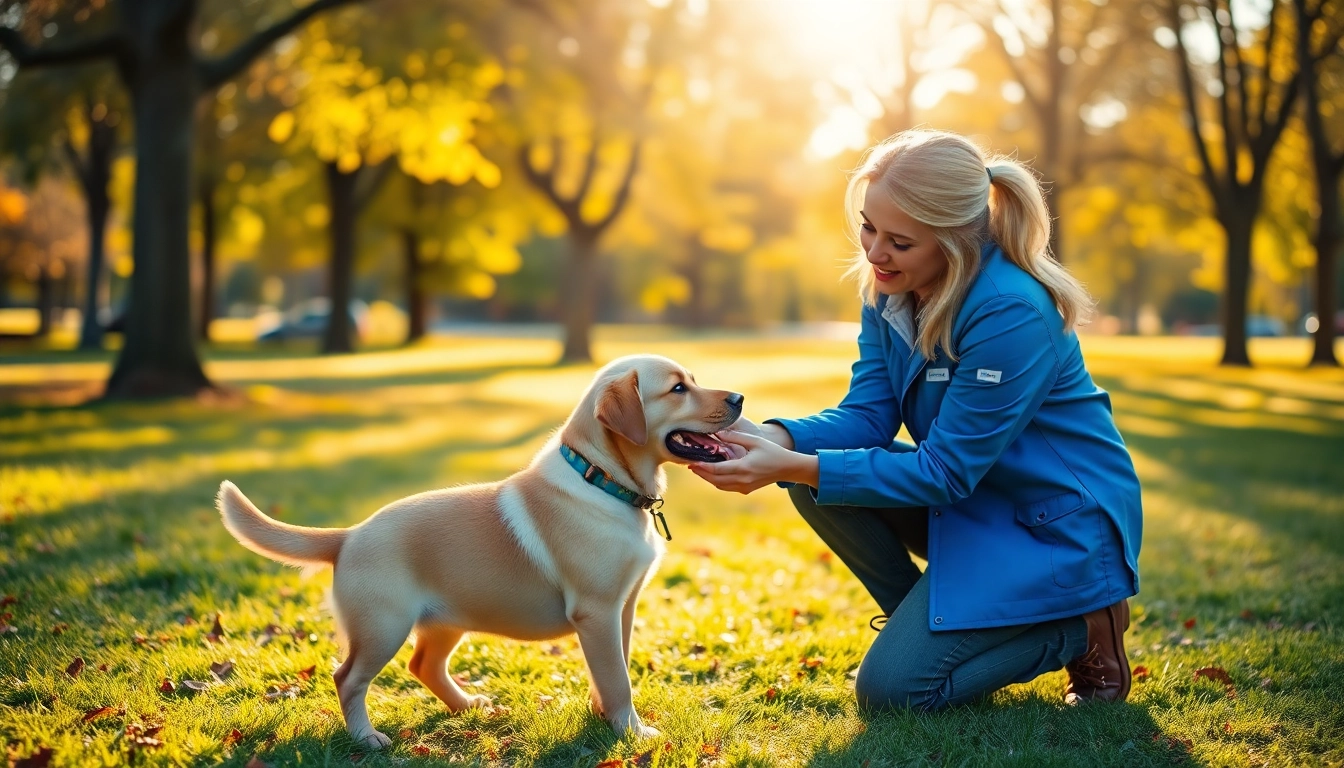Achieve the Best Dog Training in Houston: Expert Tips and Proven Techniques
Introduction to Dog Training in Houston
With a bustling urban setting and a vibrant pet-loving community, Houston is a city that loves its dogs. As a pet owner, ensuring your furry friend is well-trained is essential, not just for good behavior but also for a loving, fulfilling relationship. Understanding how to achieve the best dog training Houston has to offer will set you on the right path. In this comprehensive guide, we will explore the significance of effective dog training, different training methods available, and how to choose the right trainer for your needs.
The Importance of Effective Training
Effective dog training establishes clear communication between you and your dog. It helps prevent behavioral issues, enhances the bond between you and your pet, and ensures that they can be well-adjusted members of your family and community. Whether your goal is to teach basic obedience or address specific behavioral challenges, investing time in training can lead to a happier, healthier life for both you and your dog.
Understanding Different Training Methods
Training methods can vary widely, with some trainers advocating for positive reinforcement while others may use more traditional techniques. Understanding these different approaches is crucial in finding the right training pathway for your pup. Positive reinforcement, for example, focuses on rewarding desirable behaviors, while aversive methods could involve corrections for undesirable actions. Research consistently shows that positive reinforcement is more effective and less stressful for both the dog and the trainer.
Overview of Best Dog Training Houston Options
Houston boasts a range of dog training services and resources, from group classes to private sessions and even specialized training for specific issues such as aggression or anxiety. Popular options include reputable centers such as Puptown Houston, Believe in Dog Training, and Off Leash K9 Training. Each of these providers offers unique programs tailor-fit to various dog breeds and owner preferences.
Popular Dog Training Techniques
Positive Reinforcement: The Key to Success
Positive reinforcement is undoubtedly the most widely endorsed dog training method today. It involves rewarding your dog for good behavior with treats, praise, or playtime, encouraging them to repeat that behavior. This method is based on the principle of operant conditioning, where behaviors that are followed by positive outcomes are more likely to recur.
Many trainers in Houston emphasize this technique for its effectiveness in building a strong relationship built on trust and respect. Studies show that dogs trained with positive reinforcement display higher motivation and less anxiety than those subjected to aversive methods.
Clicker Training Explained
Clicker training is a subset of positive reinforcement that uses a distinct sound (the clicker) to mark desired behaviors. This method allows for precise timing and clarity in communication, reinforcing the behavior immediately after it occurs. It is especially beneficial in training complex commands or tricks, as the dog learns to associate the sound with a specific action and reward.
Many Houston trainers incorporate clicker training into their programs due to its effectiveness and ease of use once mastered. It provides a structured way to train and can be applied both in group settings and one-on-one sessions.
Benefits of Socialization in Training
Socialization is often overlooked in training but is equally critical for a well-rounded dog. Introducing your dog to new environments, people, and other animals can help reduce anxiety and aggressive behavior. A well-socialized dog is usually more confident and adaptable, allowing for easier communication and interaction in various situations.
In Houston, many training facilities offer socialization classes where puppies and adult dogs can learn to interact with others in controlled environments. Ensuring your dog experiences these social settings fosters good behavior and adaptability in diverse situations.
Choosing the Right Dog Trainer in Houston
Factors to Consider When Hiring
Selecting the right dog trainer is crucial to achieving effective training outcomes. Here are some key factors to consider:
- Experience and Qualification: Ensure the trainer has relevant experience and certifications from recognized organizations.
- Training Philosophy: Discuss the trainer’s approach to see if it aligns with your values, particularly regarding the use of rewards vs. aversive methods.
- Facilities and Resources: Look at the training environment and availability of resources such as tools for socialization and exercise.
Questions to Ask Before Committing
Before making a final decision, it’s beneficial to ask potential trainers the following questions:
- What training methods do you use, and why?
- Can you provide references or testimonials from past clients?
- What is the typical trainer-to-dog ratio in your classes?
- Do you cater to specific behavioral issues, and how do you address them?
Reviews and Recommendations
Online reviews and recommendations from friends or local pet groups can provide invaluable insights into a trainer’s effectiveness and reputation. Platforms like Google and Yelp allow potential clients to read firsthand experiences, which can inform your decision-making process. Additionally, consulting community resources, such as local dog parks or meet-up groups, can assist you in gathering recommendations.
Training Programs and Prices
Understanding the Cost of Dog Training
The cost of dog training in Houston can significantly vary based on several factors, including the type of training program, the trainer’s experience, and the location. On average, prices can range from $50 to $200 per session for group classes, while private lessons may be priced at $100 or more per session.
Programs that include specialized training, such as obedience for reactive or aggressive dogs, may also incur higher costs due to the extra resources and expertise needed.
Comparative Analysis of Training Packages
When evaluating training programs, it’s vital to compare what each package offers. Here’s a general overview of standard training options:
- Group Classes: Typically focused on basic obedience and socialization, suited for pet owners seeking a structured environment for learning.
- Private Sessions: Ideal for addressing specific behavioral challenges tailored to individual dogs.
- Board and Train: An intensive program where the dog stays at the training facility for a specified period, excellent for accelerating behavioral changes.
Hidden Costs to Watch Out For
When budgeting for dog training, don’t forget to consider potential hidden costs that may arise:
- Cost of training supplies such as leashes, clickers, and treat bags.
- Fees for additional classes if initial goals are not met.
- Travel expenses if the trainer comes to your home or if offsite training is required.
- Follow-up sessions to maintain training progress.
Conclusion: Your Path to the Best Training Possible
Setting Realistic Goals for Your Dog
Establishing clear and attainable goals is vital in the dog training process. Without specific objectives, training can become unfocused and may lead to frustration for both you and your dog. Determine what behaviors you wish to achieve—be it basic obedience commands or resolving specific behavioral issues—and build your training strategy around those goals.
Maintaining Progress After Training
Following completion of training, it’s essential to continue practicing commands and reinforcing positive behaviors. Regular training sessions will ensure that your dog retains what they’ve learned and continues to develop new skills. Consider setting aside time each week for refreshing sessions or engaging in new activities to keep the learning process alive and enjoyable.
Community Resources and Support
Joining local dog training classes or community pet owner groups can offer ongoing support and resources. Engaging with other dog owners allows for shared experiences, troubleshooting behavioral issues, and even forming playdates which can further enhance socialization for your pup.
Houston is home to various networks, including dog parks and local online forums, where pet owners can exchange tips and recommendations for services and trainers. Connecting with the community not only enriches your knowledge but also provides a sense of belonging and support as you navigate your training journey.











Post Comment